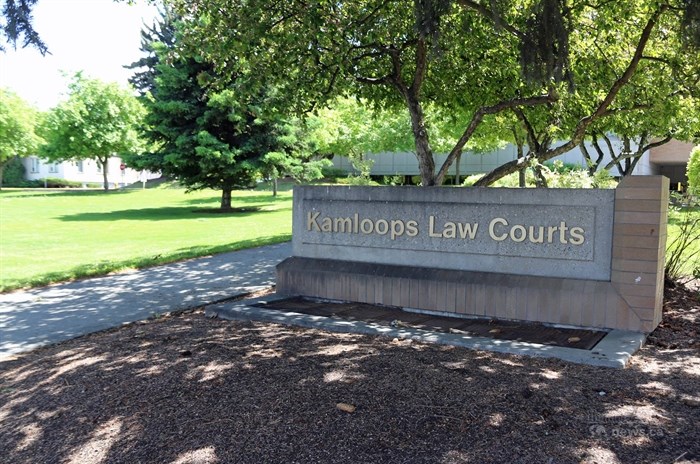
(JENNIFER STAHN / iNFOnews.ca)
April 14, 2015 - 4:17 PM
KAMLOOPS - It’s common for criminals to operate under an alias, but it’s very unusual for someone to be tried, convicted and sentenced under a fake name.
That’s what happened with Eric Bradley Charlie, born 1983, who told police in 2013 he was James Rocky Whitford, born 1990, one of 18 known aliases on his court file. He went through trial and sentencing before anyone noticed he wasn't who he said he was. Now the Crown is appealing Whitford’s sentence for numerous charges including assault and possessing a weapon, to bring the conviction against the real Eric Charlie.
In Kamloops Supreme Court today, April 14, Crown prosecutor Frank Caputo said Charlie obstructed justice when he told police after his 2013 arrest he was Whitford and kept up the ruse during court appearances, including his sentence hearings.
“He gave a false name and was incarcerated falsely under that name,” Caputo said. “That, in itself, is a deceit and a fraud on the system.”
Caputo said the name Whitford had no previous convictions, which he said likely resulted in a lighter sentence of eight months in jail.
Justice William Ehrcke asked Caputo why police and Crown didn’t use the tools available to them and why they never took steps to verify the accused was Charlie.
"Isn’t that part of the job of the police when they arrest somebody? Isn’t (identifying a suspect) one of the things in the section of the code that deals with the power to arrest?” he asked. "Just taking the fingerprints and then not doing anything with them doesn’t help.”
Authorities in Ottawa found out that Charlie and Whitford are same person after Whitford submitted a DNA sample to the national registry that matched Charlie's. Local police verified the match with fingerprint comparisons.
Charlie’s lawyer, Ken Walker, agreed there was some misrepresentation on his client’s part for being dishonest about his true criminal record, but said it’s the Crown’s onus to prove an identity, not an accused.
“I want to emphasize the right to remain silent,” he said. “(He gave) an alias... and the police failed to properly investigate his identification."
Walker said his client spent a “significant period of time” in jail for the crimes he committed and should not be penalized for providing an alias, which Ehrcke said was a regular occurrence during arrests.
“All one needs to do is look at (police record) printouts which illustrate how common it is for people to give names at their arrest. That’s why those names show up often. They’re typically discovered because the Crown and police do their homework and figure it out,” Ehrcke said. “The true matter isn’t the name. That doesn’t matter. What matters for the purpose of imposing sentence is his criminal record is different than what was put before the court."
Ehrcke is expected to give his decision Wednesday afternoon.
To contact the reporter for this story, email Glynn Brothen at gbrothen@infonews.ca or call 250-319-7494. To contact the editor, email mjones@infonews.ca or call 250-718-2724.
News from © iNFOnews, 2015